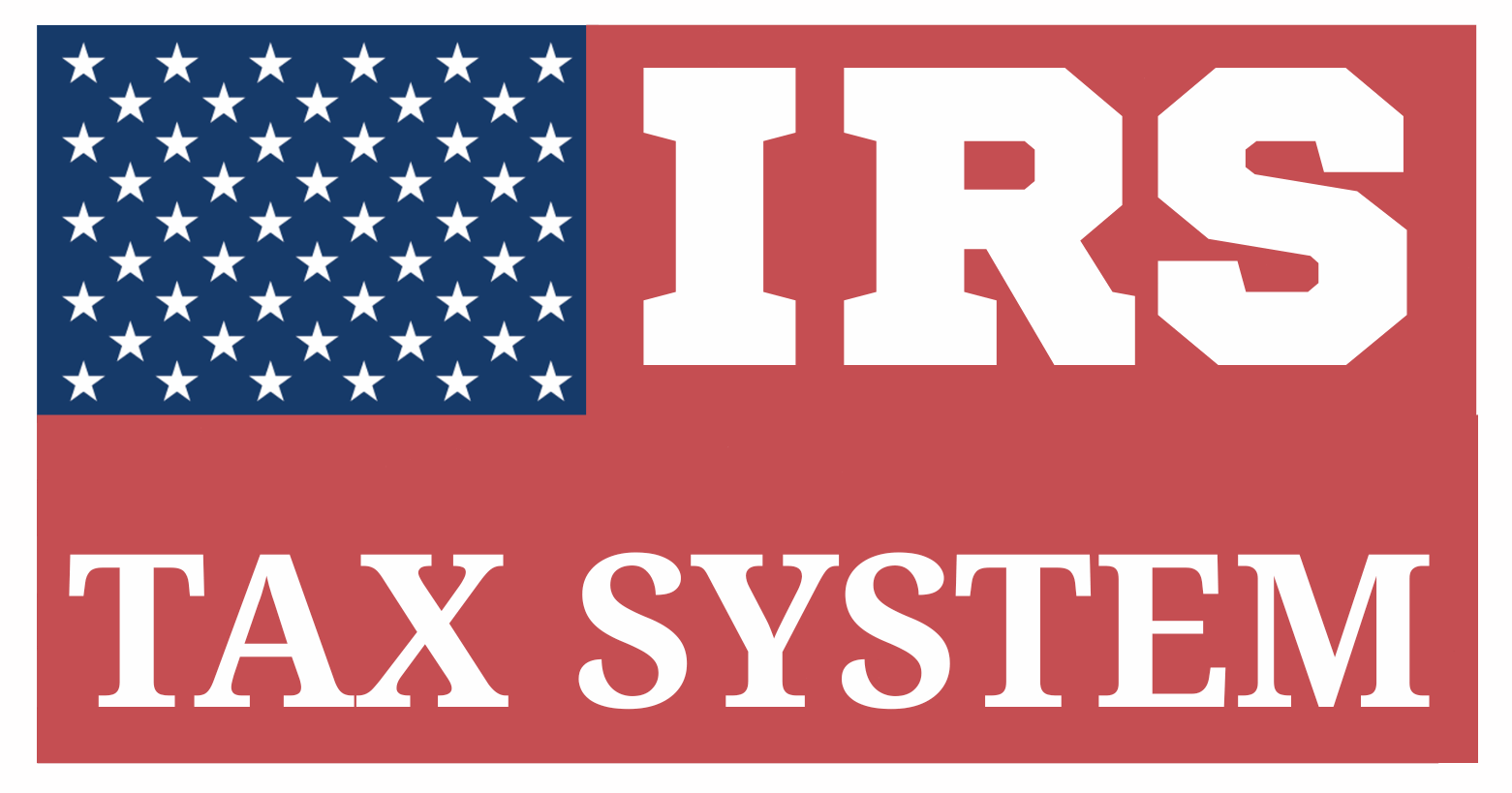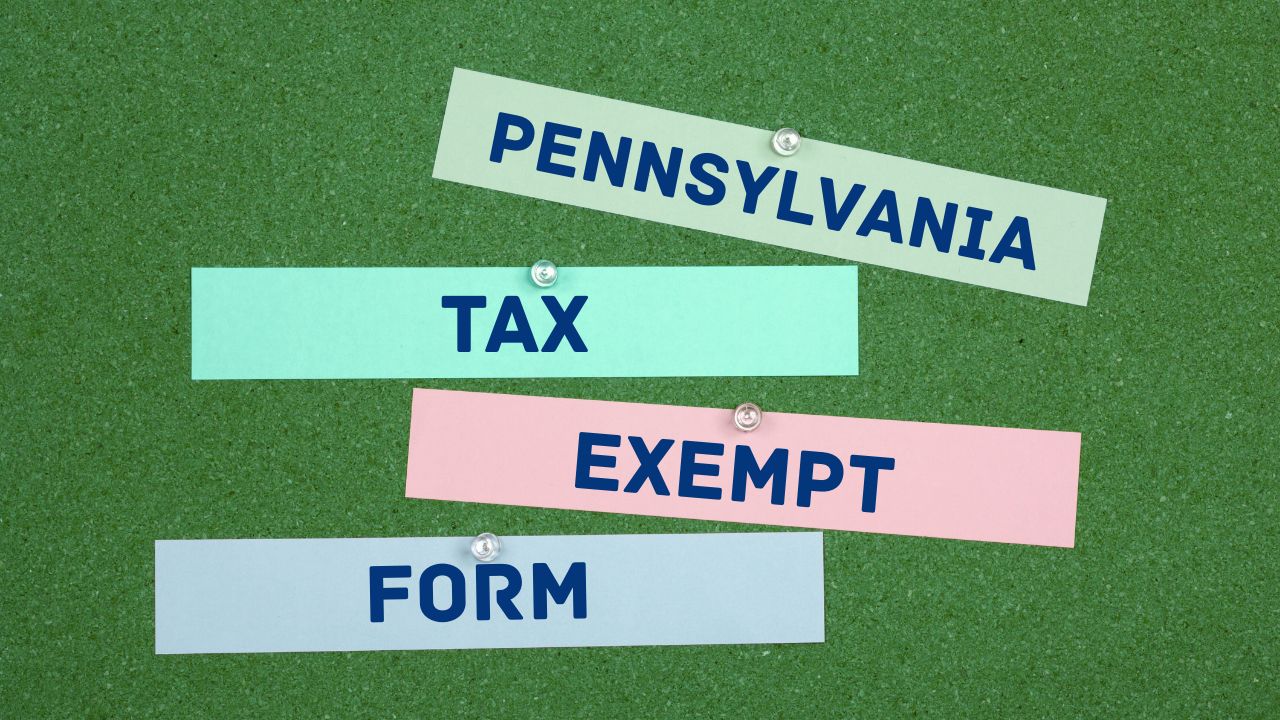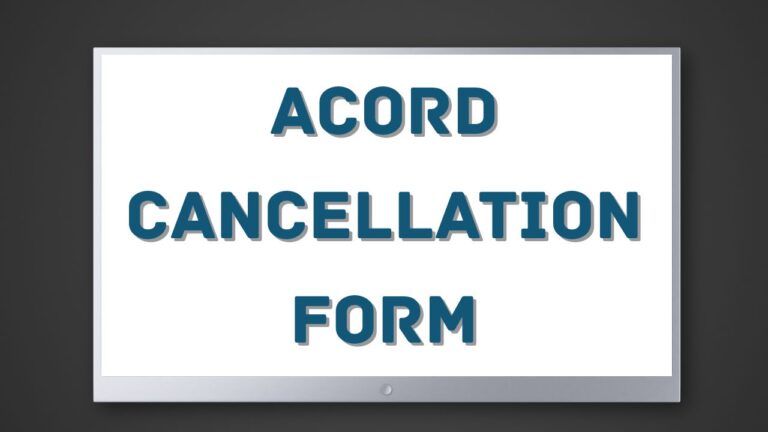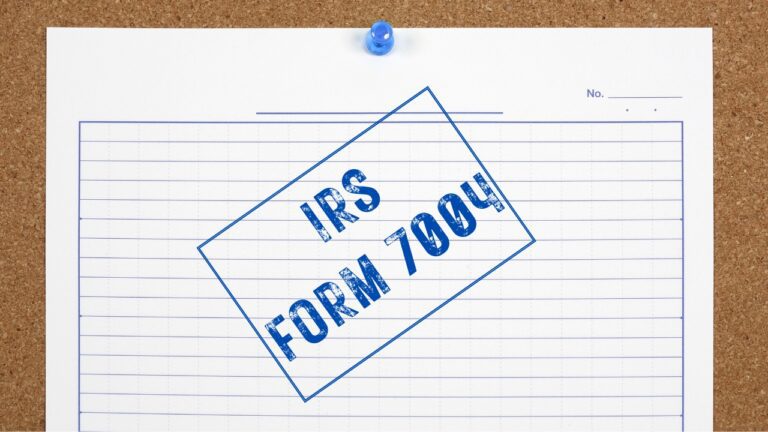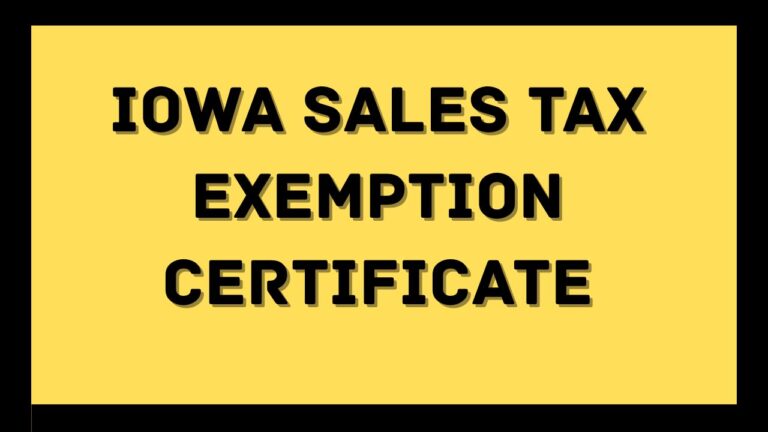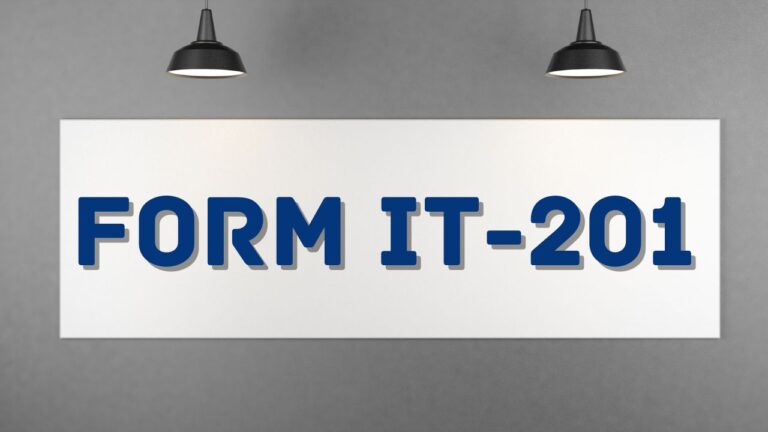PA Tax Exempt Form: Best Guide In 2025
Table of Contents
Uncovering The Outlines On PA Tax Exempt Form
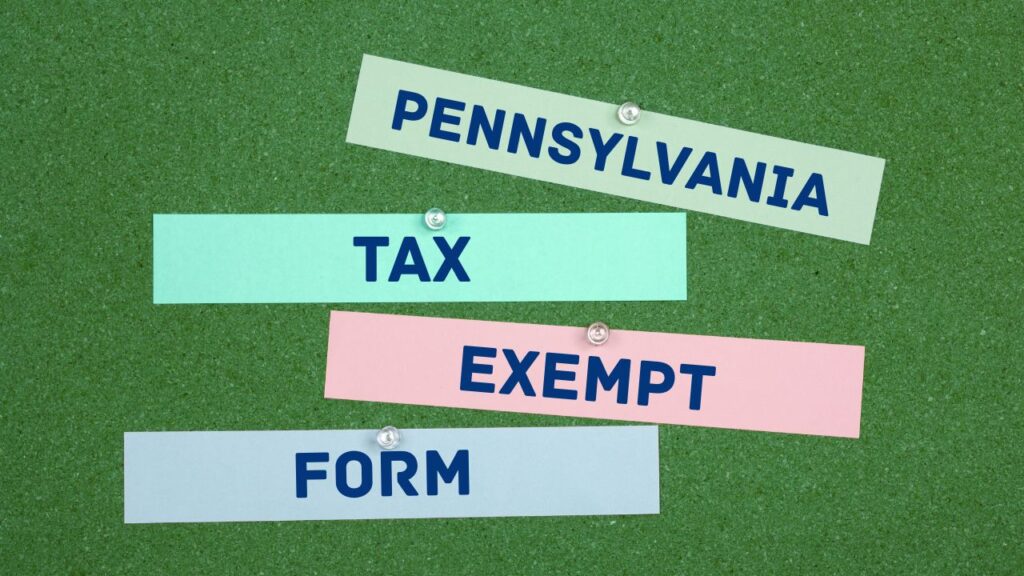
PA Tax Exempt Form: Form REV-1220, officially known as the Pennsylvania Exemption Certificate, is a legal document issued by the Pennsylvania Department of Revenue. It allows qualifying individuals or entities to claim exemption from Pennsylvania sales and use tax on the purchase of eligible goods or services.
Purpose of Form REV-1220
Form REV-1220 is not a blanket waiver of tax—it is used only for eligible transactions. Its primary purpose is to document a legally valid reason for tax exemption under Pennsylvania tax law.
When a purchaser provides this certificate to a vendor, they are certifying that their purchase qualifies for a tax exemption and that the seller is not required to collect sales tax on that transaction.
Who Uses Pennsylvania Form REV-1220
Form REV-1220, issued by the Pennsylvania Department of Revenue, is used by individuals, businesses, and organizations that qualify for a sales and use tax exemption under Pennsylvania law. This form allows eligible purchasers to buy goods or services without paying sales tax, provided the purchase meets specific exemption criteria.
Below is a breakdown of the main groups who typically use this form:
1. Retailers and Wholesalers (Resellers)
Businesses that purchase goods for resale in the ordinary course of business use Form REV-1220 to claim an exemption.
- These entities are not the end users of the goods.
- The final consumer is responsible for paying sales tax at the time of purchase.
Example:
A retail clothing store purchases shirts from a supplier to sell to customers. The store gives the supplier Form REV-1220 indicating “resale” as the exemption reason.
2. Manufacturers
Manufacturers use Form REV-1220 to purchase:
- Raw materials
- Machinery
- Equipment
- Tools
used directly in the manufacturing process. These items are exempt because they are considered essential to the production of taxable goods.
Example:
A factory purchases industrial-grade drills used solely on the assembly line. The manufacturer provides REV-1220, claiming the manufacturing exemption.
3. Nonprofit Organizations (Charitable, Religious, Educational)
Organizations recognized as tax-exempt under both IRS and PA guidelines can use Form REV-1220 to avoid paying sales tax on purchases used directly for their exempt purpose.
Common eligible organizations include:
- Churches and religious institutions
- Charitable trusts
- Nonprofit schools, universities, and libraries
- Volunteer fire departments
Note: These organizations must be registered with the PA Department of Revenue and have a valid Pennsylvania Sales Tax Exemption Number.
4. Government Entities
Sales to U.S. government agencies, the Commonwealth of Pennsylvania, and local government units (cities, counties, municipalities) are exempt from PA sales tax.
Example:
A state university purchases scientific equipment for lab use. The procurement office submits REV-1220 with “government exemption” marked and supporting documentation.
5. Contractors Working for Exempt Entities
Contractors can use Form REV-1220 to purchase building materials for use in exempt construction projects, such as public schools or government buildings.
Caution:
This exemption applies only when materials are used exclusively in a qualified tax-exempt project. Items bought for personal use or taxable purposes do not qualify for exemption.
6. Farmers and Agricultural Producers
Farmers and agricultural operators may use REV-1220 to claim exemption for purchases used directly in farming operations, such as:
- Seeds
- Fertilizer
- Livestock feed
- Farm equipment
Requirement: The items must be used directly in the production of food or agricultural products.
7. Public Utility and Mass Transit Providers
Utilities and mass transportation organizations may be eligible for exemption on purchases used in providing exempt utility or transit services.
Example:
A public transportation authority may use REV-1220 when purchasing buses, fuel, or equipment used exclusively in transit services.
8. Out-of-State Exempt Organizations
Organizations that are exempt in another state and doing business in Pennsylvania can also use Form REV-1220, but they must attach:
- A copy of their home state exemption certificate, and
- A statement confirming that the property will be used in an exempt manner
Misuse Warning
- Filing REV-1220 without being eligible for exemption can lead to penalties, interest, and tax assessments.
- The seller must keep the certificate for audit purposes.
- Buyers must complete the form accurately and sign under penalty of perjury.
Structure of Pennsylvania Form REV-1220: Exemption Certificate (Full Descriptive Guide)
Pennsylvania’s Form REV-1220 is a legal document used to certify that a purchase is exempt from Pennsylvania sales and use tax. This form is not just a checkbox document—it serves as a declaration under penalty of perjury, and every field is vital in establishing the legitimacy of the tax exemption.
Let’s break down the form in detail:
1. Seller Information
- Field Name: “Name of Seller”
- Purpose: Clearly identifies the vendor, seller, or service provider involved in the transaction.
- Details to Include:
- Full legal business name
- Complete address (street, city, state, ZIP code)
Why it matters: The seller is required by law to retain this exemption certificate as part of their records for at least four years. The Department of Revenue may reach out to sellers to confirm transaction details during a sales tax audit.
2. Purchaser Information
- Field Name: “Name of Purchaser”
- Purpose: Identifies the individual, business, government agency, or exempt organization claiming the exemption.
- Required Details:
- Legal name (matching IRS records)
- Physical mailing address (cannot be a P.O. box for organizations)
- Federal Employer Identification Number (EIN) or Social Security Number (SSN) if required
Why it matters: This section creates a legal connection between the exemption claim and the buyer. It enables tax authorities to verify nonprofit status, resale registration, or government affiliation.
3. Exemption Reason (Checkboxes)
- Label: “Check One or More of the Following Boxes”
- Purpose: The purchaser selects the reason(s) the purchase is exempt under Pennsylvania law.
Common Categories Include:
| Exemption Type | Explanation |
| Resale | Goods are being purchased to be sold to end consumers without use by purchaser. |
| Government | Purchases made by federal, state, or local agencies. |
| Manufacturing | Items used directly in manufacturing or industrial processing. |
| Charitable/Religious/Educational | Organizations with PA sales tax exemption certificates. |
| Agricultural Production | Farming tools, feed, seed, and fertilizer used for food or livestock. |
| Public Utility/Transportation Provider | Fuel, equipment, and supplies used in qualified exempt service delivery. |
| Construction for Exempt Entity | Materials used in a government/nonprofit construction project. |
Why it matters: The chosen reason defines the legal exemption and guides auditors in verifying compliance. Selecting the wrong box may lead to disallowed exemptions and back taxes.
4. Description of Property or Service Purchased
- Field Label: “Describe the property or service purchased”
- Purpose: Describes the specific items or services being bought and how they relate to the exempt use.
What to include:
- Brand/model/product type
- Quantity
- Intended use
Example:
“100 cartons of medical gloves for hospital inventory used in patient care delivery.”
Why it matters: This field connects the nature of the purchase to the exemption reason. A vague or generic answer like “supplies” may be rejected in an audit.
5. Statement of Intended Use
- Provide details on how this property will be utilized
- Purpose: Requires a short explanation tying the item/service directly to exempt business operations.
Example:
“Office equipment to be used exclusively by staff of a tax-exempt 501(c)(3) educational foundation.”
Why it matters: Pennsylvania law requires a clear link between use and exemption. This part helps determine if the purchase qualifies, especially in gray areas like partial use, dual purpose, or mixed-use items.
6. Certification Section (Signature Block)
- Fields Include:
- Printed name of purchaser
- Title (if applicable)
- Signature
- Date of signing
- Purpose: Legally binds the purchaser or their authorized representative to the contents of the certificate under penalties of law.
Legal Note: Signing this form means you affirm the information is accurate and that misuse may result in:
- Payment of back taxes
- Penalties
- Interest
- Possible criminal fraud charges
Why it matters: This section ensures legal accountability. Sellers must reject unsigned or incomplete forms.
7. Optional / Supporting Attachments
Though not an official field on the face of the form, you may be required to attach supporting documents, such as:
- IRS 501(c)(3) determination letter (for nonprofits)
- PA Sales Tax Exemption Certificate
- Home state exemption form (if out-of-state organization)
- Project documents (for contractors)
Why it matters: These attachments validate claims, especially when filing as a special entity or non-PA resident.
How to Calculate Tax Exemption Using Pennsylvania Form REV-1220
Form REV-1220 does not directly calculate tax, but it is used to claim exemption from Pennsylvania sales and use tax (currently 6%, with local surcharges in some counties). Here’s a practical, step-by-step guide to how the form affects calculations and how businesses or exempt purchasers apply it correctly.
Step 1: Identify the Taxable Amount of the Purchase
Begin by calculating the total cost of the goods or services before applying any taxes.
Example:
You purchase 10 pieces of office equipment at $500 each.
Gross purchase amount: 10 × $500 = $5,000
Step 2: Determine If the Purchase Qualifies for Exemption
Use Form REV-1220 to determine if the entire purchase or a portion of it is exempt. The exemption must match a valid reason (e.g., resale, nonprofit use, manufacturing).
Example:
You are a tax-exempt nonprofit organization purchasing computers for student instruction, not for resale.
Entire $5,000 is eligible for exemption under the educational nonprofit category.
Step 3: Present the Completed REV-1220 to the Seller Before Checkout
Provided your exemption is legitimate and the form is accurately filled out and signed:
- The seller will not charge you Pennsylvania sales tax.
- The entire $5,000 will be tax-free.
Tax Calculation Without REV-1220 (standard buyer):
$5,000 × 6% PA Sales Tax = $300 tax owed
With Form REV-1220 (exempt buyer):
$5,000 × 0% = $0 tax owed
Step 4: Understand Partial Exemptions (If Applicable)
Some exemptions apply only to a portion of the purchase:
- Example: You’re a manufacturer buying items, but only some are directly used in the manufacturing process.
You must:
- Separate taxable from exempt items.
- Use REV-1220 to certify exemption only for the exempt items.
Example:
- $3,000 in equipment used in production (exempt)
- $2,000 in office supplies (taxable)
Apply exemption to $3,000
$2,000 × 6% = $120 tax owed
Step 5: Seller Retains REV-1220 for Records
The seller must keep the exemption certificate (REV-1220) for at least 4 years in case of an audit. It protects the seller from being held liable for sales tax that should have been collected.
Summary: Sales Tax Impact with vs. without REV-1220
| Scenario | Taxable Amount | Tax Rate | Sales Tax Owed |
| Buyer does not submit REV-1220 | $5,000 | 6% | $300 |
| Buyer submits valid REV-1220 | $5,000 | 0% | $0 |
| Mixed exemption (partial items) | $2,000 taxable | 6% | $120 |
Key Considerations
- You do not deduct or reduce tax manually—tax is simply not charged if a valid exemption applies.
- REV-1220 must be submitted prior to or at the time of sale to avoid paying tax upfront.
- If you mistakenly pay sales tax on an exempt purchase, you must request a refund from the seller or file directly with the PA Department of Revenue using Form REV-65.
Deadlines & Penalties Related to Pennsylvania Form REV-1220
Form REV-1220 is a powerful exemption tool under Pennsylvania tax law—but with that power comes responsibility. Businesses and exempt organizations must timely, accurately, and honestly complete the form to avoid costly consequences.
When Must Form REV-1220 Be Provided?
There is no fixed calendar deadline like with income tax forms. However, the timing of submission is critical to ensure the exemption is properly applied:
Deadline to Submit: Before or At the Time of Purchase
- The buyer must submit a valid, signed exemption certificate (Form REV-1220) to the seller before the sale is finalized or invoiced.
- If Form REV-1220 is not presented at the time of sale, the seller is obligated by law to collect Pennsylvania sales tax, typically at 6%, with higher rates in certain counties like Philadelphia and Allegheny.
Why Timing Matters:
- Late submission may result in tax being charged.
- Sellers may not refund sales tax already collected unless allowed under specific conditions.
- Buyers may be forced to seek a direct refund from the Pennsylvania Department of Revenue, which is a lengthier process.
Recordkeeping Deadlines for Sellers
Under Pennsylvania Department of Revenue rules:
- Sellers must retain the original REV-1220 for a minimum of four (4) years from the date of the transaction.
- Ensure the certificate is retained and available for inspection by tax authorities.
- If the exemption is questioned during an audit and no valid REV-1220 is on file, the seller will be held liable for the full amount of sales tax, plus interest and penalties.
Penalties for Misuse, Errors, or Noncompliance
Failure to comply with Form REV-1220 requirements can lead to serious consequences for both buyers and sellers.
Penalties for Buyers (Exempt Purchasers)
| Infraction | Possible Penalty |
| Submitting a false or fraudulent REV-1220 | Full payment of tax owed, interest, and penalties up to 100% of the tax |
| Using the exemption for non-exempt or personal use | Civil penalties and possible criminal prosecution for tax evasion |
| Failure to properly describe property or use | Certificate may be deemed invalid; tax must be paid |
| Expired or incorrect certificates may result in | the purchase being taxed, with no assured refund. |
Penalties for Sellers (Vendors)
| Infraction | Penalty or Consequence |
| Failing to obtain a signed and valid REV-1220 before sale | Seller becomes liable for uncollected tax, interest, and potential audit findings |
| Accepting forms with missing fields or invalid use statements | Considered noncompliant under PA regulations; subject to penalties |
| Not retaining exemption certificates for 4 years | May result in tax liability during audit—even for legitimate exempt sales |
Interest & Penalty Rates
If either party is found in violation:
- Interest accrues from the original due date of the tax.
- Late filing penalties can range from 5% per month, up to 25% of the total unpaid tax.
- Fraudulent use may result in penalties up to 100% of the tax due, and in extreme cases, criminal prosecution.
Example
A nonprofit organization purchases $10,000 worth of laboratory equipment but fails to submit Form REV-1220 at the time of purchase.
- The seller collects $600 in sales tax (6%).
- Later, the nonprofit attempts to submit the exemption form after the sale.
- The seller refuses to issue a refund because no exemption was documented at the point of sale.
- The nonprofit must file Form REV-65 with the Pennsylvania Department of Revenue and wait several months for processing.
Conclusion
Form REV-1220 is a critical tool for maintaining compliance while avoiding unnecessary tax liability for qualifying businesses, nonprofits, and government entities. By properly completing and issuing this certificate, purchasers can lawfully claim sales tax exemption and protect vendors from incorrect tax collection.
Frequently Asked Questions (FAQs)
What is Form REV-1220 used for?
Form REV-1220 is used by qualified individuals, businesses, nonprofits, and government entities to claim exemption from Pennsylvania sales and use tax on eligible purchases. It allows sellers to avoid charging tax when a transaction meets statutory exemption conditions.
Who can use Form REV-1220?
Buyers eligible to use Form REV-1220 include:
-Registered Pennsylvania resellers
–Nonprofit organizations (e.g., schools, churches)
–Manufacturers purchasing equipment for direct production
–Federal and Pennsylvania government agencies
-Out-of-state purchasers shipping goods outside PA
Is Form REV-1220 submitted to the PA Department of Revenue?
No, Form REV-1220 is not submitted to the state. It should be given to the seller at the time of purchase and kept on file by the seller for audit purposes.
When should I submit Form REV-1220?
You must submit Form REV-1220 before or at the time of the transaction. Submitting the form after purchase may not entitle you to a refund of sales tax already paid.
What happens if I don’t submit REV-1220 in time?
The seller will likely charge Pennsylvania sales tax. You may still be eligible for a refund, but only by filing Form REV-65 (Application for Refund) with the Department of Revenue, and this process can take several months.
Can I use Form REV-1220 for personal purchases?
No. Personal purchases do not qualify for exemption, even if the buyer is affiliated with a tax-exempt organization. Misusing the form for personal purchases may result in penalties or prosecution.
How long is Form REV-1220 valid?
Generally, the exemption remains valid as long as the nature of the exempt activity doesn’t change. However, sellers may require a new certificate every few years to maintain compliance.
What if my exemption reason doesn’t match a listed category?
You must select the most applicable reason on the form. If your situation is unique, you may provide a detailed explanation in the appropriate section of the form, or contact the PA Department of Revenue for guidance.
Does a seller have the right to refuse a tax exemption claim using Form REV-1220?
Yes. Sellers are not required to accept Form REV-1220 if they believe the exemption is invalid or unsupported. They may charge tax and let the buyer pursue a refund directly from the state.
What if the exemption is misused?
Improper use of Form REV-1220 may result in:
-Repayment of the full sales tax
-Accrued interest
-Penalties up to 100% of the tax
-In serious cases, criminal prosecution
